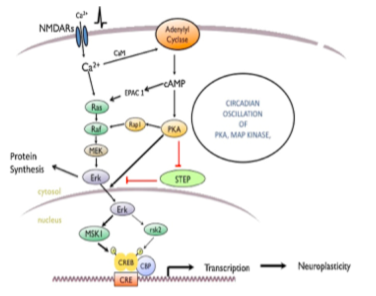Wildest Dreams (not the song by Taylor Swift)
Before you begin to read the rest of this post, I ask that you watch this video.

What you just watched is one of my favorite videos on the internet. Whenever I see this video on a platform, I watch the whole thing and just smile the whole time. In case you didn’t feel like watching the video, I will also describe it. The video is just twenty seconds long and consists of a little boy attempting to ask the audience if they were had a dream similar to one of his. However, the audience is unable to recall a similar dream, due to the child’s inability actually ask the question. He tries to ask but cannot form a complete sentence until the very end of the video and, even then, the question still doesn’t make sense. I had you watch this video for two reasons: 1) I was hoping to put a smile on your face and make your day a little bit better and 2) I wanted to pose a similar (?) question to my audience (you).
What is the most memorable dream you’ve ever had? I’ve had many memorable dreams, but there is one set of recurring dreams I had that I will probably remember forever. I call them recurring because, though the actual plot of the dreams had nothing to do with the other, the ending was always the same. The first one took place at a river near my childhood home, one which had a strong current. The second dream took place in the ocean on the boat from Suite Life on Deck (shout out if you remember that show). TRIGGER WARNING. In both dreams, my brother’s death was the end of the story. In both dreams, he died due to drowning. I had these dreams probably in middle school, but I still remember them like I dreamt about them last night. You’ve probably had equally impactful dreams—ones that make you forget you’re dreaming, ones that you could retell with astounding accuracy. Now, researchers aren’t exactly sure why we dream when we sleep, but many dream theories have to do with memory consolidation.
(Also, just so you don’t think I’m a psychopath for dreaming about my brother’s death, he had a dream where I was mauled by a pack of wild dogs, so we are even).
Sleep and Memory Consolidation
Memory consolidation in the hippocampus follows a pretty distinct pathway, starting with the NMDA receptor. The NMDA receptors are most commonly known for their role in learning and memory, so it is no surprise that these receptors are the starting point for memory consolidation. Once the NMDA receptor is activated by glutamate, this triggers a cellular influx of calcium. The influx of calcium into the cell activates adenylyl cyclase, which then increases the production of cAMP. The increased production of cAMP activates PKA, which then activates Ras and the rest of the MAPK pathway (Raf, MEK, and ERK). Then, MSK-1 is activated, which phosphorylates CREB and triggers the transcription and translation of the CRE gene. To break it into chunks, and maybe help with the understanding, the first part of the pathway is G-protein signaling. The middle piece of the pathway is the usual MAPK pathway, followed by activation of a transcription factor. The figure below outlines this pathway.

Now, you may be wondering how the memory consolidation pathway in the hippocampus relates to sleep. This is a very good question, and I will answer it for you. The memory consolidation pathway is active during REM sleep. In addition, many of pieces of the CRE transcriptional pathway are modulated by the PER1 protein. The PER1 protein is an essential protein in the circadian cycle, and this protein oscillates cAMP, Ras, MAPK, and CREB. The circadian cycle refers to the physical, mental, and behavioral changes that follow a 24-hour cycle. Circadian cycles are primarily stimulated by light input thus, it controls the sleep-wake cycle. During the circadian cycle, an individual’s proteins are expressed in various levels depending on what point in the cycle an individual is on, which is referred to the circadian oscillations of the protein. So, PER1, which is an essential clock protein, controls the circadian oscillations of cAMP, Ras, MAPK, and CREB. Thus, in REM sleep, PER1 is responsible for the strength of the expression of these proteins after the pathway has been activated.